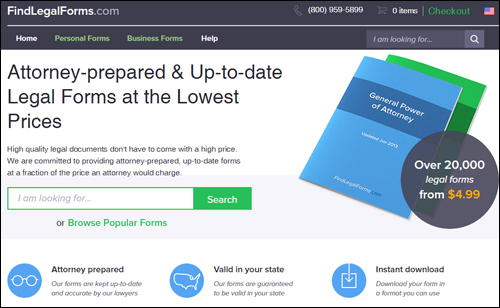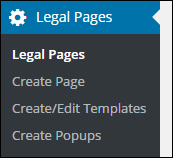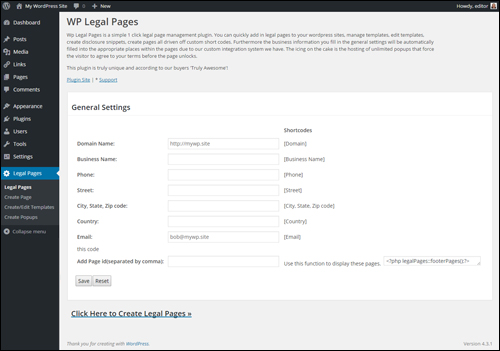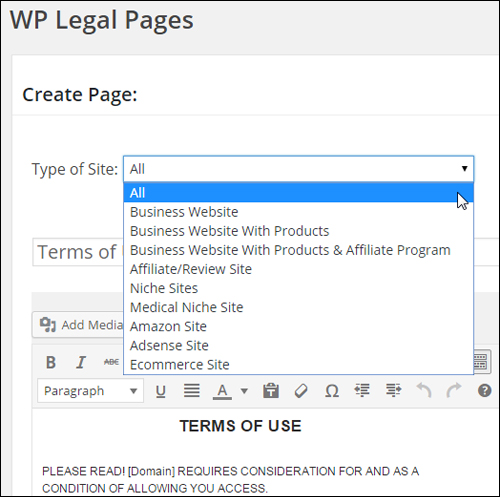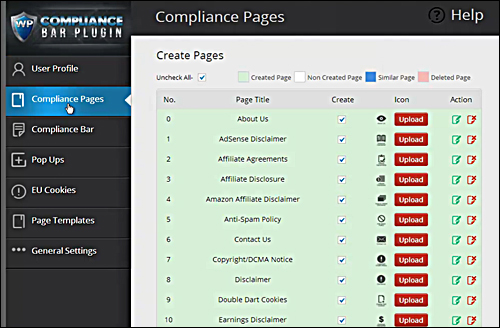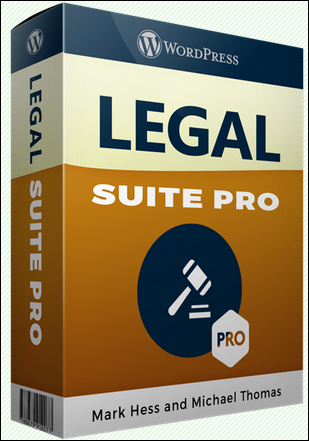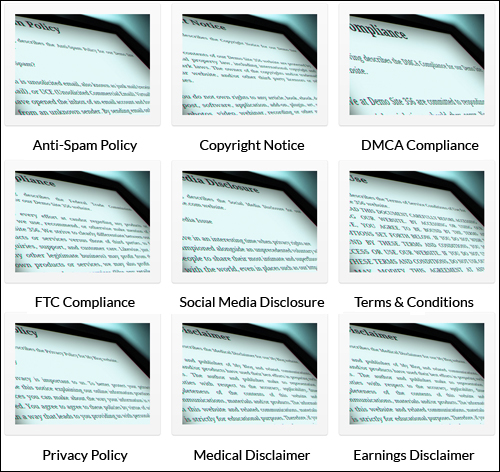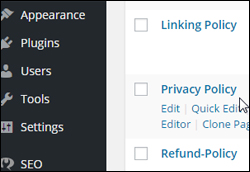
Is your WordPress website legal? Do you know if your site is breaking any laws, or contravening the Terms of Service (TOS) of any third-party companies whose services or products you offer or endorse?
As the digital economy continues growing at an overwhelming speed and rules constantly change, it’s vitally important that you stay on top of what’s going on and ensure that your website remains compliant, especially if your online presence plays a significant role in your overall business strategy.
New laws introduced in 2014 regulating how businesses promote advertising on their websites state that if you plan to promote anything on your website for material gain, then you need to follow certain disclosure guidelines to prevent enforceable orders being issued against you by regulatory agencies, such as the Better Business Bureau, also called the BBB. Search online for information about “The Online Interest-Based Advertising Accountability Program,” which regulates behavioral advertising across the internet for more details.
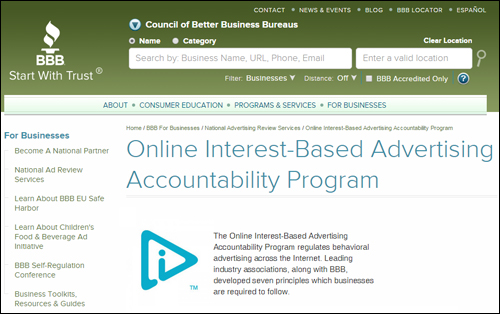
(Online Interest-Based Advertising Accountability Program – BBB)
The introduction of these new laws affect several business categories, including:
- Any kind of advertising, including Google AdWords
- Retarget Marketing
- Google Analytics (or other analytics software)
- Affiliate Marketers
- Product Creators
- Blogging
- etc.
If your website does not display certain legal pages (e.g. terms of service, privacy policy, earning disclaimers, etc.), many third-party sites like Google won’t let you advertise, digital marketplaces like ClickBank or JVZoo won’t allow you to sell digital products, PayPal could shut down your account and withhold payment of your funds, Facebook will suspend your web applications, and you won’t be allowed into most advertising and affiliate merchant networks.
If your web presence is not in compliance, you could also end up facing a number of penalties, including fines, having your website shut down, even jail time!
This guide explains the importance of having a compliant website and describes simple and cost-effective methods to help make your website or blog compliant quickly and easily.

Is Your Website Breaking The Law?
![]()
Disclaimer: We are not lawyers and we are not offering legal advice on this website. You must carry out your own due diligence and we recommend consulting legal experts about the best way of ensuring that your website is compliant with the law wherever you do business.
Why It’s Important To Make Your Website Compliant
Are you at risk? Consider for one moment what would happen to your business if these scenarios were to happen:
- A customer has a heart attack after using your online fitness program.
- The skin cream you sell as an affiliate marketer gives someone skin rashes.
- Your opt-in list displays a statement informing subscribers that you won’t sell their information, but you haven’t spelled out exactly what you plan to do with the information you’ve collected.
- Someone copies your content and puts it up on their own website.
- There is no statement on your website making your visitors aware that you are an affiliate for the product you’re recommending that you may receive financial benefits if they purchase through your affiliate link.
- You didn’t spell out the terms and conditions of your refund policies.
- Someone claims your testimonials are misleading and decides to sue you as a result.
- You haven’t disclosed in a product review that you were given a free copy of the product.
- Your site includes adult-related information and you have not taken sufficient measures to restrict access by underage children.
Consider too these actual examples of costly compliance breaches:
- A CPA Marketer failed to provide adequate disclaimers telling visitors they would be required to give up their personal information to complete his offer. Cost = $390,000.
- A social networking app developer was slapped with a massive $800,000 fine for collecting personal information from mobile device address books without the owners’ knowledge and consent – including storing private details about children.
- Facebook’s Terms Of Service does not allow users to scrape UIDs. Many internet marketers gambled that they could get away with it and lost. Their accounts were shut down, resulting thousands of dollars in lost revenue.
- An independently-conducted 2010 study by Brad Geddes of SearchEngineLand, showed that, of a couple of hundred websites chosen at random, more than 90% were breaking at least one of Google’s policies, more than 65% had broken at least 2 of Google’s policies, and more than 40% were in violation of at least 3 of Google’s policies. Although the website owners could technically be sued by Google, more than likely what could happen, is that they would be issued notices or lose access entirely to the Google program with the infringement, which could result in loss of income (e.g. AdSense or AdWords).
Can you see how easy it is to be exposed to the risk of non-compliance?
Regardless of whether you are a:
- CPA (Cost Per Action) Marketer
- Multilevel Marketer
- Affiliate Product Marketer
- AdSense Publisher
- Niche Publisher
- Amazon Associate
- e-Commerce Store Owner
- Publisher Of Adult Content
- Freelancer, Coach or Consultant
- Online Seller Of Any Service Or Product
It’s vitally important to make sure that your online business has the right legal pages and clearly accessible to all site visitors.
Compliance With 3rd-Party Services Terms And Policies
Complying with 3rd-party companies terms and policies is important.
You must let your visitors know that your business complies with legal requirements and recommended guidelines. This not only improves consumer trust and buyer confidence in your business, it’s also a requirement of many companies you will do business with online.
Here are just some examples:
Google requires you to display legal information if using many of their services. This includes using Google Analytics …
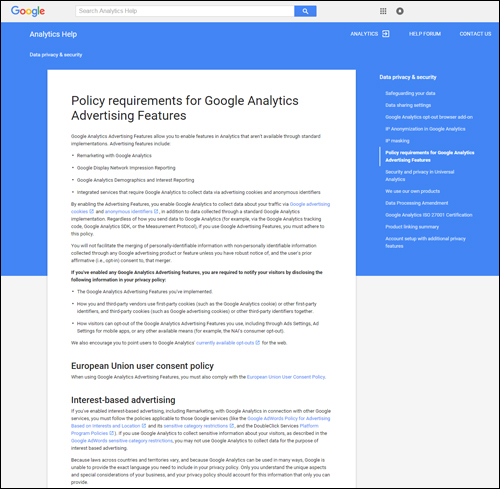
(Policy requirements for using Google Analytics)
Earning revenue with your website with Google AdSense ads …
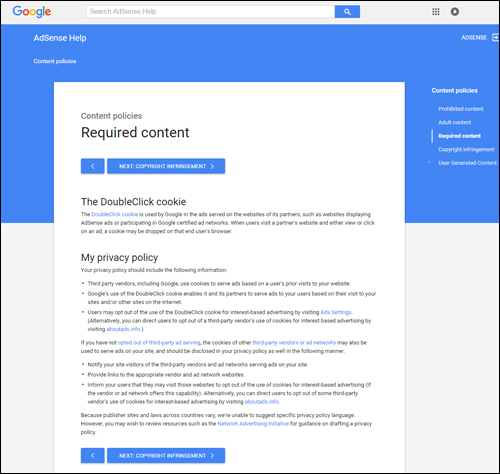
(Google AdSense ads - policy requirements)
Or promoting your products through Google AdWords …
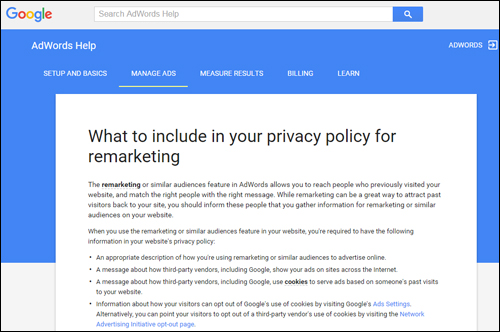
(Google AdWords – Policy Requirements)
If you sell products online with companies such as ClickBank, JVZoo, or other established merchant sites, you are required to add a number of legal pages before they will approve your products for selling via their marketplace …
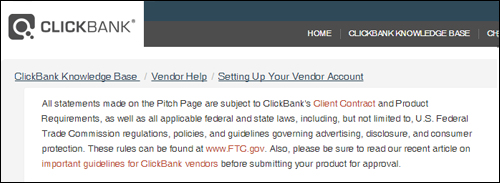
(Policy requirements for selling via ClickBank)
The Federal Trade Commission also requires that you add clear disclaimers and disclosures on your site, especially when using product testimonials or endorsements …
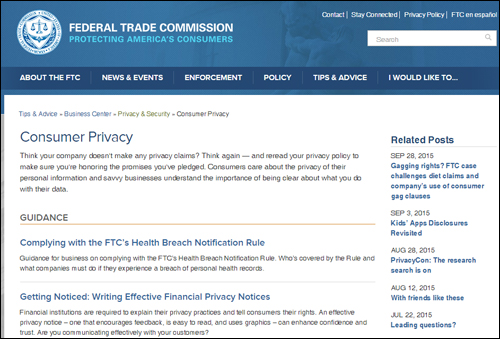
(Federal Trade Commission – consumer guidelines and regulations)
FTC Regulations Require Your Site To Comply
New FTC regulations governing the conduct of doing business online were introduced in March 2012. Search online and you will see that many business are still unaware (or choose to ignore) these requirements. As documented on their website, this often ends up with the FTC making an example of businesses and prosecuting companies in an effort to get other businesses to comply.
If you do any kind of selling online, therefore, it’s best not to take chances. Even if your business does not operate in the U.S. you should protect your business by making sure that your website complies with all FTC guidelines.
A number of resources online provide guidelines on how to structure disclaimers and disclosures to help your business meet FTC requirements. See the references and resources section at the end of this article for more information …
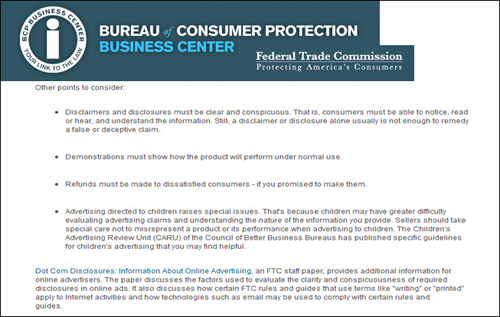
(It’s important to structure your disclaimers and disclosures correctly to avoid running foul of laws and regulations)
Don’t Forget Social Media Applications
If you plan to develop apps for your website, you will also be required to provide sites like Facebook, Twitter, and others with access to your legal pages …
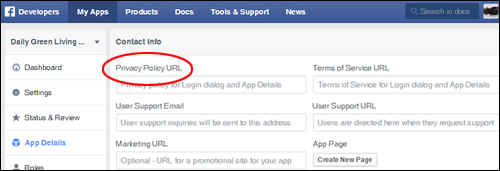
(Apps that interface with social networking sites like Facebook also require compliance)
![]()
- If you are unsure whether you may be breaking the law, and/or Terms of Service policies and guidelines of websites like Google, Facebook, etc., then it’s best to assume that you most probably are.
- If you are considering promoting anything on your site using affiliate marketing, or monetize your pages with Google AdSense, Amazon, or eBay ads, or use Google AdWords to drive visitors to your pages, etc., then find out exactly what kind of legal information you need to include on your site to comply with all Terms Of Service and policy requirements - don’t risk having your accounts suspended.
- If you’ve ever wondered whether “borrowing” a Copyright Notice is Copyright infringement, then it’s best to act now and take proper precautions to avoid becoming a litigation magnet.
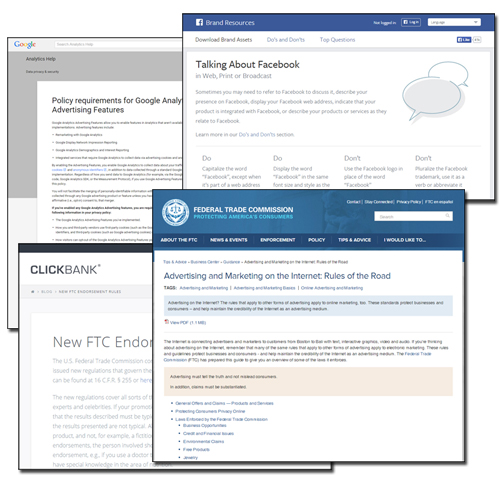
(In addition to legal and regulatory compliance, most 3rd-party services require you to comply with their policies and guidelines)
Common Legal Pages To Include In Your Site To Ensure Compliance
If your web site is falling short in aspects of compliance, then this section will help you.
Adding the following legal pages to your site will help you keep out of trouble with many consumer protection authorities and third-party service providers, and even help to avoid possible legal issues or even threats of legal action (e.g. “cease and desist” notices):
- About Us
- Contact Us
- Privacy Statement
- Terms And Conditions
- Disclaimer Pages
- General Data Protection Regulation (GDPR) Compliance
In addition to the pages above, you may want to look into including one or more of these pages if applicable:
- Affiliate Agreement (e.g. if you sell products or services through an affiliate program)
- Anti-Spam Policy
- Earnings Disclaimer
- External Linking Policy
- Health Disclaimers (if your website or blog provides health or medical content)
- Refund Policy (if you sell products or services online)
- Video/Audio Terms (if you provide users with access to videos or audio files on your site)
Types Of Disclosure Pages
It’s important to add correct disclosure information to your website. For example:
- No Material Connection – This lets site users be aware that you will not receive compensation for writing the post.
- Affiliate Links – Disclosure that informs users that you may receive compensation if they buy through affiliate links on your site.
- Review Or Sample Copy – Lets users know that you have received a sample or review copy of the product by the author or developer.
- Sponsored Post – Lets readers be aware that you have been compensated in some form to write the post.
- Third Party Advertising – Informs your visitors that you’re using online behavioral tracking technology. This is required to comply with the “enhanced notice” the Better Business Bureau has been requiring website publishers to show prominently on their sites since January 1, 2014.
How To Add Legal Pages To Your Website
Ideally, you should have your lawyer prepare the content of your legal documents. Once this has been done, there are several ways to include them in your website.
Upload Legal Web Pages Manually To Your Site
If someone prepares the legal content for you in typical web page formatting (e.g. HTML), you can simply upload these to your web server, or have someone upload these pages for you.
We recommend creating a legals folder in your server and uploading your legal pages to this folder (e.g. via FTP) …
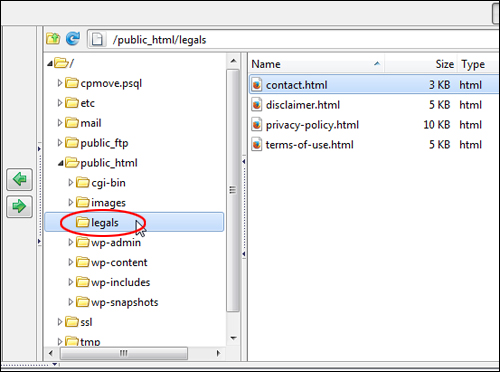
(Create a ‘legals’ folder on your server and upload pages via FTP)
You can then add a link to these pages in WordPress using custom links in your menu administration …
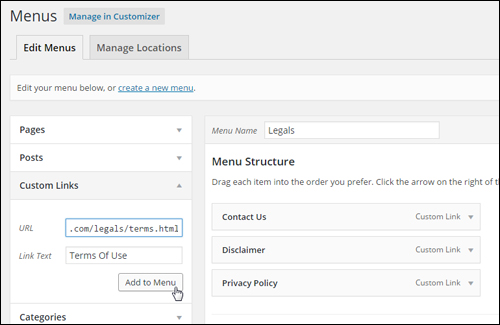
(WordPress Menu)
Displaying Legal Pages On Your Site
Make sure that your legal pages are fully up-to-date and display clearly to your visitors. You can insert these into the WordPress sidebar (or place them in the footer section of your website) to ensure that users can access the information from every web page …
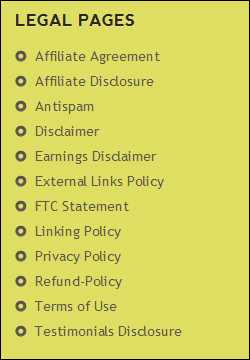
(Display legal pages to users on all of your site’s pages)
We have created a detailed tutorial about displaying links to pages on your sidebar menu here:
Ready-Made Legal Templates
You can find downloadable attorney-drafted disclosures and forms and agreements by searching online, or by visiting websites like the ones listed below:
Find Legal Forms
More information:
Alternatively, you can purchase a package of cut and paste legal templates designed by attorney Scott Talbert …
Cut & Paste Website Legal Pages
(Cut & Paste Website Legal Pages)
Cut & Paste website templates were created by an attorney and feature less passive voice and more plain language phrasing and can be customized with a quick search and replace to insert your own details, then pasted into your legal pages.
The legal forms included in Scott Talbert’s Legal Page Templates include:
- Anti-Spam Policy
- Copyright Notice
- Disclaimer: multi-discipline professional disclaimers
- DMCA Compliance
- FTC Compliance
- Privacy Policy: Google, etc.
- Terms of Service & Conditions of Use: includes inter- & intra-page redundancy, Contra Proferentem provision, reservation of rights, and exclusive social media admonition.
You can either create a new WordPress page for each legal form you want to add to your site, then paste the content from the templates into your web pages and publish or upload these to your server as described earlier.
More info:
Legal Page Plugins
As well as using legal templates, you can keep things really simple by using a plugin.
Here are some great legal plugins for WordPress-powered websites you should check out:
WP Legal Pages Plugin
(WP Legal Pages Plugin)
If you don’t want to bother with creating legal pages manually, then consider choosing a plugin like WP Legal Pages …
This is not a free plugin, but it’s an affordable and well-supported plugin that will help simplify the job of creating and implementing legal pages on your site and save you a great deal of time.
Here are just some of the reasons to consider using WordPress Legal Pages:
- Built-in Templates – Includes over 20 built-in legal templates created by professional lawyers.
- Very Quick And Easy To Use – You can set up most of your basic legal pages in a few minutes with a few clicks of the mouse.
- Customizable Pages – Includes fully customizable and easy to edit legal form templates (e.g. Terms of Use, Disclaimer, Earnings Disclaimer, Privacy Policy and more!)
- Editable Pages – Full WYSIWYG editor lets you edit legal pages like any other page on your site.
- Custom Shortcodes – You can add shortcodes to any of your pages and the information will then be automatically inserted into your pages when published.
- Exclude pages. The plugin lets you exclude pages from menus with a simple check box and delete and manage these like any other WordPress page.
- Forced Options – Force page or post lock down. When a user agrees to your terms, the page unlocks.
- New Features – More features are being added to this plugin with each new version.
After installing WordPress Legal Pages, a new menu feature will be added to your main WordPress dashboard section …
(WordPress Legal Pages Plugin – Menu)
This lets you create, view and edit legal pages from the admin area …
(WordPress Legal Pages Plugin – Settings Area)
With WPLegal Pages, you can create legal pages for different types of websites, such as business websites, niche sites, Amazon sites, etc …
(WordPress Legal Pages – Page Type)
Choose from several pre-written legal templates …
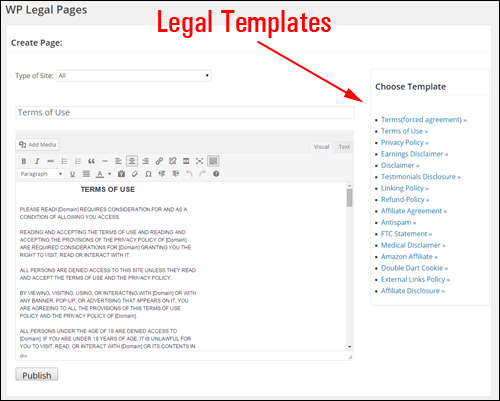
(WP Legal Pages Plugin For WordPress – Built-In Legal Templates)
Legal page templates include:
- Terms of Use (Users are forced to agree to Terms and Conditions before using site)
- Linking Policy
- External Links Policy
- Terms and Conditions
- Refund Policy
- Affiliate Disclosure
- Privacy Policy
- Affiliate Agreement
- Facebook Privacy Policy
- Earnings Disclaimer
- Antispam Policy
- DoubleClick DART Cookies Policy
- Disclaimer Template
- FTC Disclosure Statement Template
- Medical Disclaimer Template
- Testimonials Disclosure – As per FTC guidelines
- Amazon Affiliate Disclosure Template
- DMCA Policy Template
- California Privacy Rights Policy Template
- Digital Goods Refund Policy Template
- COPPA – Children’s Online Privacy Policy Template
- Blog Comments Policy Template
- Newsletter Subscription Policy and Disclaimer Template
- FTC Disclaimer Widget
Visit the plugin website for more information about the benefits of using this handy plugin:
Compliance Bar Plugin – WordPress Plugin For Website Compliance
total website compliance and disclaimer solution …
To learn more about the plugin go here:
Legal Suite Pro Plugin
(Legal Suite Pro Plugin)
This plugin lets you easily install professionally-written legal pages such as:
- Anti-Spam Policy
- Copyright Notice
- DMCA Compliance
- FTC Compliance
- Privacy Policy
- Social Media Disclosure
- Medical Disclaimer
- Terms of Use
- Earnings Disclaimer
(Legal Suite Pro Plugin For WordPress – Professionally-written legal forms)
Additionally:
- Drag & Drop FTC Disclaimer Widget: Add an FTC Disclaimer to any WordPress sidebar or widget area.
- Customizable EU Cookie Compliance Bar: Display an EU cookie compliance bar if you are getting traffic from the EU and your sites use cookies.
With just one-click you can install almost all of the legal pages your site needs and these professionally written legal pages can be created in your theme and/or as a standalone page outside of your theme.
The plugin developers secured rights to high quality, professionally written legal disclaimers and packaged them into a plugin that can be installed quickly on any WordPress powered site. Your legal pages can be installed and set up on your site in one minute or less and the license allows you to install and use this plugin on all of your sites (even sites that you decide to sell).
Go here to learn more:
![]()
If using the services of lawyers to create your online legal documentation is out of your budget, consider implementing at least some kind of basic legal protection on your site until you can afford professional assistance.
We want your business to be legally protected!
Download the FREE Legal Pages Generator tool below, or choose one of the better solutions we discuss in this article, such as using legal templates, or a plugin as described in the section below.

(Legal Pages Generator Software)
Legal Pages Generator allows you to quickly generate essential legal documents for your website including Terms of Service, Privacy Policy, Copyright Notice, Website Disclaimer and Earnings Disclaimer.
***
As we’ve previously pointed out, if you do business online (or are planning to), you need to ensure that your site stays compliant with regulatory agencies and the terms of service (TOS) and guidelines of 3rd-party sites that you may decide to promote or use online. If your website isn’t compliant with laws designed to protect the rights of consumers, you’re breaking the law.
Non-compliance puts you at risk of suffering both financial losses and the loss of your reputation. Why risk your money and reputation, when you can protect yourself so inexpensively?
![]()
Disclaimer: Once again, we are not lawyers and we do not offer legal advice. You must do your own due diligence and consult a legal expert to ensure that your website fully complies with all legal requirements concerning your specific business.
Additional Legal Information
Here is a useful list of additional sites we suggest you visit to help you better understand what your website may require to stay compliant and meet legal requirements and guidelines:
- Federal Trade Commission Latest List Of Rules & Regulations
- Federal Trade Commission Advertising & Marketing Rules Of the Road
- FTC Advertising And Marketing On The Internet
- Better Business Bureau
- Dot Com Disclosures: Information About Online Advertising
- Restore Online Shoppers’ Confidence Act
- CAN-SPAM Act Guide
- Children’s Online Privacy Protection Rule
- FTC Regulatory Review Web Page
- FTC Rules and Guides Currently Under Review
- The Department of Commerce Internet Policy Task Force – Commercial Data Privacy and Innovation in the Internet Economy: A Dynamic Policy Framework
- FTC Staff Report: Self-Regulatory Principles for Online Behavioral Advertising
- FTC Final Guides Governing Endorsements and Testimonials
- US Patent and Trademark Office
- US Copyright Office
In Addition …
- Analytics Help – Policy requirements for Google Analytics Advertising Features
- Google AdSense Program Policies Explained
- AdSense Help – Required Content
- Google AdWords – Information Collection And Use
- Google AdWords Help – What to include in your privacy policy for remarketing
- ClickBank – Creating Your First Product
- Facebook Platform Policies
Hopefully, this article has helped you understand the importance of having a compliant website. Use the information provided above to quickly add essential legal pages to your site.
***
"I have used the tutorials to teach all of my clients and it has probably never been so easy for everyone to learn WordPress ... Now I don't need to buy all these very expensive video courses that often don't deliver what they promise." - Stefan Wendt, Internet Marketing Success Group

